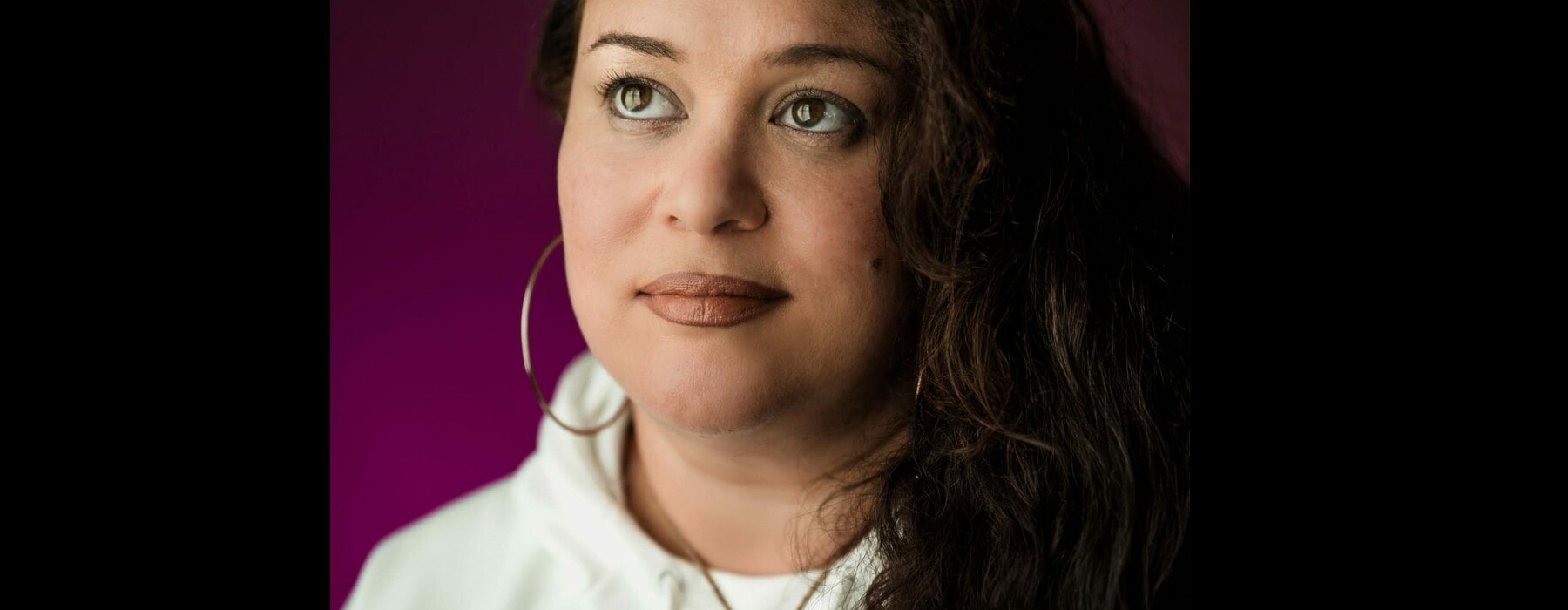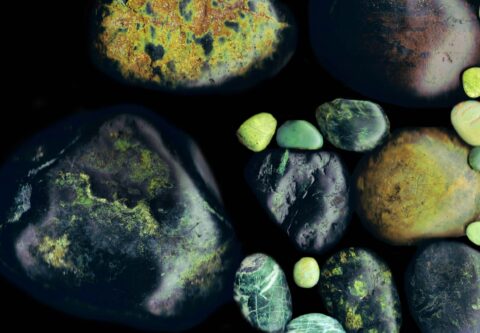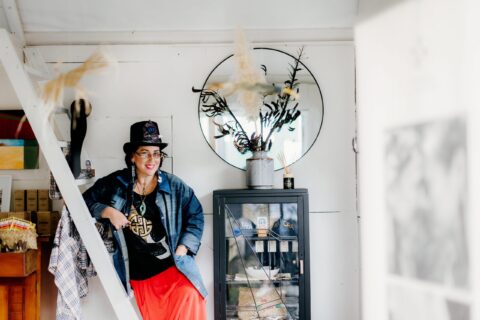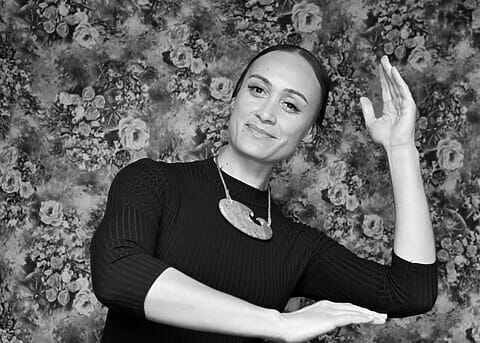Coco Solid has poured her rage over the devastating effects of gentrification on families into her first novel – one she never thought she’d write.
Coco Solid has had an impressive career as a successful musician, screenwriter, poet, and visual artist. But the one creative endeavour she’s always wanted to try is writing a book.
Now, at 41, the Māori and Samoan artist has finally fulfilled that dream and recently released her debut novel, How to Loiter in a Turf War. A work of autobiographical fiction, the genre-bending book tells the story of three friends living in Auckland who are dealing with the racial tensions and struggles of gentrification.
“Writing a book was always my original dream. Other genres and creative avenues have been powerful, fruitful, and great training grounds, but they were ways for me to procrastinate. The things you want the most are the hardest to proclaim.”
Coco is the creator of cult cartoon Aroha Bridge, with other screenwriting credits including popular TV comedy Wellington Paranormal and Māori Television soap Ahikāroa. She’s a long-time member of Taika Waititi’s Piki Films. As a musician, she has toured the world and has her own production house and record label.
But adding “novelist” to her list of credentials was something Coco always thought was out of reach, because she initially felt she did not belong in the literary world as a Māori, Pacific, and takatāpui woman.
“I had been intimidated and, in some cases, marginalised and excluded from the literary community, so I thought this dream was never going to happen,” she says. “I had spoken out about the colonial processes of literature, creative writing, and academia in New Zealand, which can be very exclusionary. I felt the whole thing has been founded and fashioned on an old paradigm, which I was never going to fit into.”
That all changed in 2018 when Coco received a scholarship to research her book at the University of Hawai’i. She had previously graduated with a scriptwriting degree from the Broadcasting School in Christchurch and completed her masters in creative writing at Victoria University of Wellington’s International Institute of Modern Letters. When the senior editor at Penguin heard she was in Hawai’i to write her first novel, he expressed interest, and eventually the company agreed to publish the book.
“After thrashing and doubting myself for a very long time, the way it actually came together was swift,” Coco says.
After working in collaborative creative industries, such as film and music, she found the solitary nature of novel-writing a challenge. “I am used to the collective being a part of everything I do. A book isn’t like that. A book is just you and the page. It’s harsh, because you don’t have anyone else to turn to or blame. It’s your voice and what you want to say. There’s a lot more responsibility. It made me feel very vulnerable.”
Coco grew up in the ’80s and loves pop culture. She even had a Transformers collection and religiously watched international sitcoms. She says this influences her work. “The Māori and Pacific experience and seeing ourselves in pop culture is important to me. Pop culture is a great way to convey, communicate and smuggle a lot of difficult concepts to the people. The vehicle we choose to communicate some sophisticated ideas doesn’t have to be in sophisticated ways.”
This style is evident in her novel, for which she also designed the cover art. Raised in Auckland, Coco found focusing on gentrification was a way to express her rage at the impact it had on her life and the lives of her loved ones. Her grandmother had to move from her home in the Auckland suburb of Grey Lynn after living in the area for many years, due to the changes in the area.
“It was so quick and swift. It was like my world was getting rewritten in front of me – and I didn’t like the story. There was such deep cultural history and roots in the area and I saw them getting sidelined. The communities that had worked so hard to make the areas really rich and representative of something deeper than just a good location were the last to benefit from what was supposed to be revitalisation. A home is not a home without the people who are there to uphold the fort. I suffered a lot of grief and I poured all of that into this novel.
“The important part is making people who are complicit in gentrification connect the dots. I wanted to point out, through my rage, that it’s colonisation in a different font. It’s a new-wave practice that creates cultural and class division and bullies people out of their communities.”
IMAGE: © TODD KAREHANA
This is Public Interest Journalism funded by NZ On Air.








